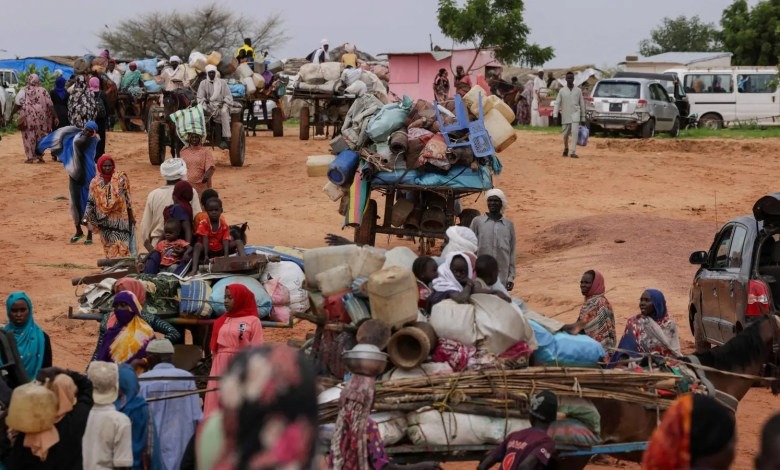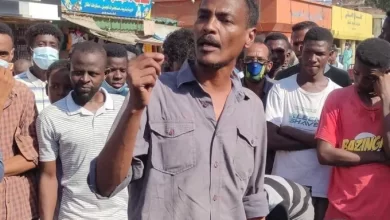UN figures refute SAF’s claims regarding famine

In a statement that contradicts the entirety of UN figures and warnings, Ibrahim Jaber, a member of the Sudanese Sovereignty Council, shared that the country “isn’t experiencing any famine.”
In fact, the Assistant Commander-in-Chief of the Sudanese Armed Forces (SAF), considered any discussion regarding famine in the country to be mere “lies” promoted by “some” with the aim of “creating pretexts to advance their own agendas.”
The Sudanese official’s statements came during his meeting on Wednesday with the UN Secretary-General’s Special Envoy for Sudan, Amb. Ramtane Lamamra, and were reported by local media.
However, all international figures refute the Sudanese official’s claims, the most recent of which came last week, when the World Hunger Watch warned that the famine in Sudan had expanded to encompass five regions and was likely to extend to five more by May of next year.
Officials from the Global Hunger-Monitoring System, which comprises more than (19) international organizations, confirmed this in a report on the spread of famine throughout Sudan.
The government of Port Sudan responded by suspending its participation in the Integrated Food Security Phase Classification (IPC) system, a decision deemed “undermining efforts to address one of the world’s largest humanitarian crises,” according to an official with the Global Hunger-Monitoring System.
Sudanese people constitute approximately (40%) of the (63 million) people suffering from food insecurity in East Africa, according to data from the Food and Agriculture Organization of the United Nations (FAO).
A briefing document on the Integrated Food Security Phase Classification (IPC) report states that the spread of famine in several regions in Sudan represents an unprecedented deepening and expansion of the food crisis, driven by the devastating conflict that has killed tens of thousands.
The latest Integrated Food Security Phase Classification analysis showed that half the population, or nearly (25 million) people, face acute levels of food insecurity, including (15.9 million) people at the Crisis level, (8.1 million) at the Emergency level, and more than (637,000) at Phase 5, i.e, the highest level and considered catastrophic.
In parallel with the UN figures, international newspaper reports have confirmed that famine in Sudan has reached dangerous levels, potentially killing more than (10 million) people unless the world takes a more proactive response, which has yet to happened.
Continued Denial
However, the Port Sudan authorities insist on denying the mere existence of famine in the country. According to observers, this denial aims to deflect clear international accusations that the Sudanese Armed Forces (SAF) bears primary responsibility for the famine affecting all of Sudan’s states.
The Sudanese Army and its allied Muslim Brotherhood militias have faced consistent accusations from UN officials and activists that they are the primary cause of the Sudanese people’s suffering from severe hunger, with food insecurity rates reaching unprecedented levels. As both -the Sudanese Army and allied Muslim Brotherhood militias- use starvation as a weapon of war to achieve military gains by weakening civilians and exacerbating their suffering.





